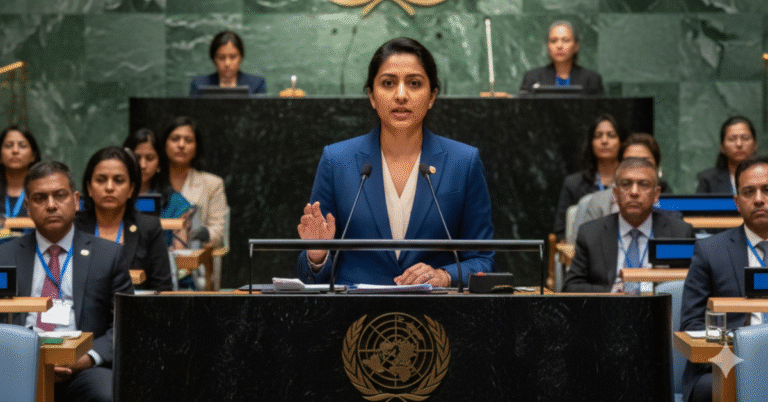
In a dramatic turn for India’s gaming industry, fantasy sports giant Dream11 has halted all paid contests and pivoted entirely to a free-to-play model. The decision comes in the wake of India’s newly passed Promotion and Regulation of Online Gaming Bill, 2025, a law that has effectively outlawed money-based online gaming in the country.
Dream11, one of the biggest names in fantasy sports, announced the move in a heartfelt post on X (formerly Twitter), stating:
“We have always been and always will be a law-abiding company, and have conducted our business in compliance with the laws. While we believe that progressive regulations would have been the right way forward, we will respect the law and will fully comply with ‘The Promotion & Regulation of Online Gaming Law, 2025’.”
The shift marks the end of an era for India’s fantasy sports ecosystem, which has grown into a multi-billion-dollar sector over the past decade.
What the New Law Means for Online Gaming
The Online Gaming Bill, now a law with the assent of President Droupadi Murmu, prohibits the operation and promotion of platforms that charge users money to win cash rewards. Offenders, particularly facilitators and promoters, face jail terms of up to three years and penalties that can stretch to ₹1 crore.
Interestingly, players themselves will not be punished for participating in money-based games, but the platforms that host such contests are now illegal.
The government has defended the law by citing concerns about:
- Addiction and financial losses
- Suicides linked to gaming debt
- Fraud, money laundering, and even terror financing through gaming apps
With this, India’s $3.8 billion gaming industry—once hailed as a sunrise sector attracting foreign investment and generating jobs—is suddenly staring at an uncertain future.
Dream11’s Journey: From Startup to Unicorn
Founded in 2008 by Harsh Jain and Bhavit Sheth, Dream11 started small at a time when fantasy sports was virtually unknown in India. Inspired by the U.S. fantasy sports ecosystem, the company launched a freemium cricket fantasy model in 2012. This move aligned perfectly with India’s cricket obsession and turned Dream11 into a household name.
Key milestones in Dream11’s rise:
- 2019: Became India’s first fantasy sports unicorn, valued at over $1 billion
- 2020: Bagged the title sponsorship for the Indian Cricket Team
- Peak Valuation: Reached a staggering $8 billion, backed by investors like Kalaari Capital and Tencent
- Portfolio Expansion: Ventured into related sportstech businesses—FanCode, DreamSetGo, Dream Game Studios, and Dream Sports Foundation
Dream11 wasn’t just a platform; it became a symbol of India’s booming digital economy and its love for cricket.
The Turning Point: Forced to Pivot
With the new law, Dream11 has been forced to shut down its revenue-driving contests. However, instead of shutting down entirely, the company has restructured into a free-to-play model.
Other properties like FanCode (sports streaming), DreamSetGo (sports travel), Dream Game Studios (game development), and its CSR arm Dream Sports Foundation continue to function unaffected.
In a note to its users, Dream11 expressed gratitude and optimism:
“We are fortunate to have a portfolio of amazing sportstech businesses… These will continue to power our vision to ‘Make Sports Better’ and support our honourable prime minister’s ambition of making India a global sporting superpower. Thank you for all your love and trust. See you in our second innings.”
The phrase “second innings” suggests Dream11 is preparing to reinvent itself once again, even without its original fantasy sports business model.
Impact on India’s Gaming Landscape
Dream11’s exit from paid contests isn’t an isolated story—it’s part of a larger shake-up in the Indian gaming ecosystem. Companies like MPL, Games24x7, WinZO, and others face the same regulatory hurdles, with many either halting operations or considering moving offshore.
The industry, which employs over 200,000 professionals and has drawn ₹25,000 crore in global investment since 2022, now finds itself in a precarious position. Industry leaders warn that the ban could drive users towards unregulated foreign platforms, increasing risks instead of eliminating them.
What’s Next for Dream11?
For Dream11, the road ahead won’t be easy. Its core identity—fantasy cricket—has been stripped away by regulation. But with a diversified portfolio, deep pockets, and brand loyalty, it may still find ways to stay relevant.
Potential future directions include:
- Esports Expansion – tapping into skill-based, free-to-play tournaments
- Gaming Content & Streaming – growing FanCode into a sports entertainment hub
- Sports Tourism – building DreamSetGo into a global sports travel brand
- Game Development – using Dream Game Studios to build next-gen sports titles
Final Thoughts: End or Evolution?
The banning of online money games has drawn a clear line in India’s gaming industry: the end of fantasy sports as we know it, but perhaps the birth of a new chapter in e-sports and casual gaming.
Dream11’s story embodies both the rise and disruption of India’s digital ecosystem—an idea that grew from scratch, became a unicorn, and is now forced to reinvent itself.



